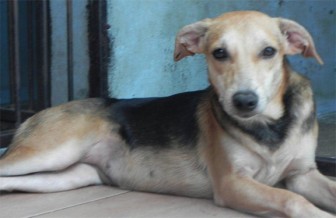Continued from last week
Kidney failure (uremic poisoning)
Kidney failure, also called renal failure, may be sudden and acute or chronic and progressive. Acute failure occurs as an after-effect of certain infectious diseases (such as leptospirosis) and during shock conditions and poisonings. Chronic kidney failure is the end result of a nephritis and possibly other long-standing diseases.
It is important that it be understood that the kidneys will not produce urine, if the dog’s blood pressure falls below a critical threshold. Accordingly, dehydration, blood loss, shock, congestive heart failure, and injuries to the arteries of the kidneys, all may cause acute renal failure. This may occur even though the kidneys are healthy and normal. This type of kidney failure is called pre-renal. It will improve if the underlying cause is treated promptly.
Also, it must be mentioned that the kidneys will not make urine, if the urinary tract is blocked by a stone, a tumour or an infectious process in those organs (ureters, bladder, urethra) further down the line. Urine then backs up, shutting off flow. This type of kidney failure is called post-renal.

By far the majority of kidney failures are chronic (slow in developing). However, a dog could remain asymptomatic (without showing signs of ailment) as long as 25 per cent of his nephrons are working well. Thus, a considerable amount of damage can occur to the kidneys, before you will begin to see signs of kidney failure. But when it occurs, it is the devil’s own job for the situation to be corrected.
Signs of kidney failure
At first you may notice that your dog seems to drink and void a lot more than usual. His kidneys no longer can conserve water, and so he has an (obligatory) urine output much greater than normal. He will want to go outdoors several times a day to relieve himself or, if confined to the house, he will begin to make ‘mistakes‘ – especially at night. The dog living outside will be constantly urinating all over the place.

As the pet’s renal function continues to deteriorate, it will begin to retain ammonia, nitrogen, acids and other wastes in its blood and tissue (uremic poisoning). Signs of uremia are apathy and depression; refusal to eat; loss of condition; a dry hair-coat; a brownish discolouration to the surface of the tongue; and an ammonia-like (urinous) odour to the breath. Vomiting, diarrhoea, and episodes of gastrointestinal bleeding can occur. Anaemia is common. Close to the end, the dog falls into a coma. Sometimes the uremic condition can be associated with disorders in mineral metabolism which is characterized by loosening of the teeth and ulcerations of the mouth and gums (‘rubber jaw’).
Your vet will advise on the necessity of laboratory tests of the blood/urine.
Treatment
A dog suffering from chronic kidney failure may still have many happy months or years of life ahead of him with proper treatment. Your veterinarian may wish to make an exact diagnosis by ordering special tests, or by exploratory surgery and biopsy. This could help to determine whether the ailment is reversible.
It is important in the management of kidney failure to (i) replace salt lost in the urine by giving sodium chloride tablets by mouth; (ii) feed a high quality, low protein diet; and (iii) give vitamin supplements to replace vitamins lost in the urine. Water should be available at all times. Some small bit of exercise is good for a uremic dog, but too much stressful activity should be avoided.
Please implement disease preventative measures (vaccinations, routine dewormings, monthly anti-heartworm medication, etc) and adopt-a-pet from the GSPCA’s Animal Clinic and Shelter at Robb Street and Orange Walk, if you have the wherewithal to care well for the animals. Do not stray your unwanted pets, take them to the GSPCA’s Clinic and Shelter instead. If you do not wish your pet to have puppies or kittens, you may exploit the GSPCA’s free spay and neutering programme. If you see anyone being cruel to an animal, or if you need any technical information, please get in touch with the Clinic and Shelter by calling 226-4237.




